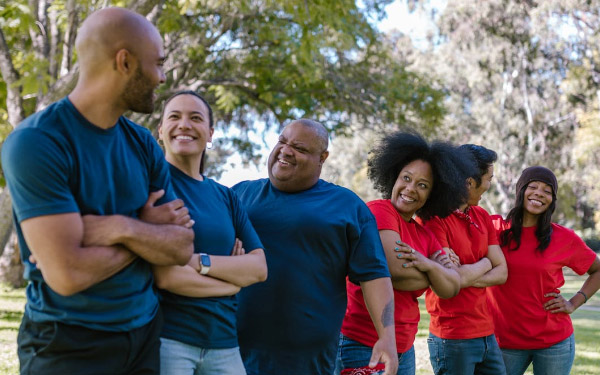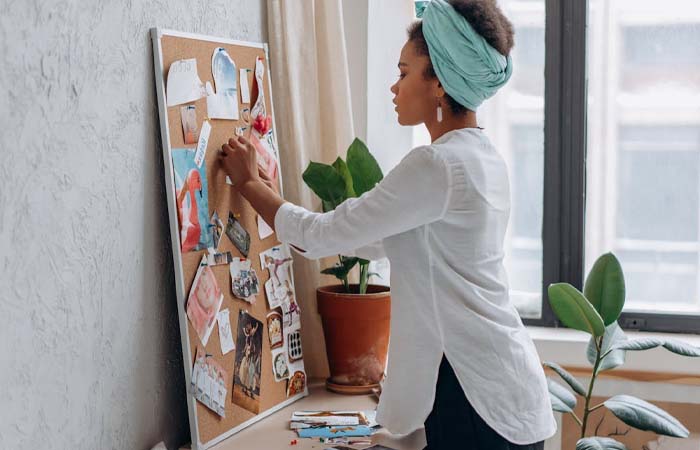Table of Contents
ToggleHow to win friends and influence people - successfully
The purpose of “How to Win Friends and Influence People” by Dale Carnegie extends beyond just improving social interactions; it is designed to transform an individual’s approach to relationships and influence. Carnegie’s book equips readers with strategies to enhance their communication skills, making them more persuasive and likable. These techniques include showing genuine interest in others, using positive reinforcement, and handling disagreements diplomatically.
Here are some suggestions inspired by Dale Carnegie’s principles from his book “How to Win Friends and Influence People”:
A friendship
1. Show Genuine Interest in Others
Ask questions about their lives, interests, and opinions. Inquire about their hobbies, family, work, and aspirations. Show curiosity about their experiences and the things that matter to them. For example, if someone mentions they enjoy gardening, ask about the types of plants they grow or the challenges they face. When they discuss their work, delve into what they enjoy most about their job or the projects they’re passionate about. This demonstrates that you value their perspective and are invested in getting to know them better.
Please listen carefully and show that you care about what they say. This means more than just hearing their words; it involves active listening. Make eye contact, nod, and provide feedback that shows you’re engaged, such as paraphrasing their points or asking follow-up questions. Avoid interrupting or planning your response while they’re speaking. Your body language should convey openness and interest. Reflect on their emotions and respond empathetically, acknowledging their feelings and experiences. By truly listening, you validate their importance and build a deeper connection.

2. Smile
A genuine smile can make you more approachable and create a positive first impression. Smiling naturally conveys warmth and friendliness, making others feel comfortable and welcome in your presence. It can set the tone for a pleasant interaction and help break the ice in social situations. When you smile, you project confidence and positivity, which can be contagious, encouraging others to respond in kind.
Moreover, a smile can significantly impact the way people perceive you. It suggests that you are open, approachable, and interested in engaging with others. This can lead to more meaningful and productive conversations, as people are more likely to open up to someone who appears friendly and non-judgmental. Additionally, smiling can improve your mood and reduce stress, creating a more relaxed and enjoyable environment for everyone involved. Incorporating a genuine smile into your interactions can foster a more positive and inviting atmosphere that facilitates better connections and relationships.

Friends reunited
3. Remember and Use People's Names
A person’s name is the sweetest sound to them. Use it in conversation to make them feel valued and acknowledged. When you remember and use someone’s name, it shows that you see them as an individual and respect their identity. It can create a personal connection and make your interactions more engaging and memorable.
Using names in conversation can also enhance rapport and trust, making the other person feel important and appreciated. For instance, instead of saying “Hi,” saying “Hi, Michael,” adds a personal touch that can make a big difference. This small but powerful gesture can significantly strengthen your relationships and make communication more effective.
4. Be a Good Listener
To encourage others to talk about themselves. Show genuine interest in their stories, opinions, and experiences. Ask open-ended questions that prompt them to share more about their thoughts and feelings, and give them the space to express themselves fully. Listen more than you speak, allowing them to lead in the conversation. This gives you valuable insights into their perspective.
Avoid interrupting or thinking about your response while they are talking; instead, focus entirely on what they are saying. Reflect on their words and emotions, providing empathetic feedback and follow-up questions to deepen the conversation. Being a good listener you build trust and understanding, creating a strong foundation for meaningful relationships.

5. Talk in Terms of Other People’s Interests
Find out what matters to them and steer conversations in that direction. When you discuss topics important to others, you show the value of their interests and are willing to invest time in understanding them. This enhances rapport and makes interactions more enjoyable. For example, if someone loves to travel, you may ask about their favorite destinations. Focusing on their interests creates a sense of connection and mutual respect, making conversations more engaging and strengthening the relationship.

6. Make the Other Person Feel Important
Show appreciation and give sincere compliments. Acknowledge their achievements and strengths. Recognize their contributions and express genuine gratitude for their efforts. Highlight specific qualities or actions that you are paying attention to and truly value their presence.
For instance, if a colleague excels at problem-solving, commend their ability to find effective solutions. If a friend is a great listener, let them know how much you appreciate their support. Small gestures, like saying “thank you” or praising their work in front of others, can significantly boost their self-esteem and motivation.

7. Avoid Criticizing, Condemning, or Complaining
Criticism can often lead to resentment, damaging relationships, and creating a negative atmosphere. Instead, you focus on positive reinforcement to highlight what people are doing well and offer supportive constructive feedback in a good manner. This approach encourages improvement and fosters a more positive and collaborative environment.
For example, if a colleague makes a mistake, rather than criticizing, acknowledge their efforts and suggest ways to improve. By emphasizing the positive and providing encouragement, you build trust and motivate others to strive for better performance without feeling demoralized.
8. Show Respect for Others' Opinions
Even if you disagree, be respectful. Acknowledge that differing viewpoints are a natural part of any discussion and approach to an open mind. To avoid arguing or dismissing others’ opinions, engage in a calm and thoughtful dialogue. Listen actively to understand their perspective and express your views in a considerate manner.
This approach fosters a respectful exchange of ideas and can lead to more constructive and harmonious interactions. By valuing others’ opinions, it is a good way to handle disagreements with respect, you create a more positive environment that encourages mutual understanding and cooperation.

9. Admit Your Mistakes Quickly and Sincerely
Taking responsibility for your errors can earn you respect and trust. When you acknowledge your mistakes openly and with sincerity, you demonstrate integrity and accountability, which strengthens your credibility. It shows that you are willing to learn from your errors and are committed to making things right.
By addressing mistakes promptly and taking corrective action, you not only rectify the issue but also build stronger relationships with others, who will appreciate your honesty and responsibility. This approach fosters an environment of trust and respect, encouraging open communication and collaboration.
Dear my friends
10. Begin in a Friendly Way
Start interactions with warmth and kindness to set a positive tone. Approach conversations with a genuine smile and a welcoming demeanor to immediately make others feel at ease. By greeting people with friendliness and showing an open, approachable attitude, you create an inviting atmosphere that encourages positive engagement. This initial warmth can pave the way for smoother communication and build a foundation of goodwill, making it easier to navigate any subsequent discussions or negotiations. A friendly start not only enhances rapport but also fosters a more collaborative and pleasant interaction.
11. Get the Other Person Saying "Yes" Immediately
Find common ground early in the conversation to build agreement and rapport. Begin by identifying shared interests, goals, or experiences that can create a sense of alignment and mutual understanding. This initial agreement helps to establish a positive and cooperative atmosphere, making the other person more receptive to your ideas and perspectives. By starting with points of consensus, you encourage a pattern of agreement that can lead to smoother interactions and more effective communication.

12. Let the Other Person Do a Great Deal of the Talking
People like to feel heard. Encourage them to share their thoughts and feelings.
13. Let the Other Person Feel That the Idea Is Theirs
If possible, let them take credit for ideas. It fosters a sense of ownership and pride.
14. Try Honestly to See Things from the Other Person’s Point of View
Empathy builds deeper connections and understanding.

15. Be Sympathetic to Others' Ideas and Desires
Acknowledge their feelings and show that you understand their perspective.
16. Dramatize Your Ideas
Present your ideas in an interesting and engaging way to capture attention and interest.
17. Throw Down a Challenge
People are often motivated by challenges. Use this to inspire and energize them.
Carnegie’s principles are grounded in the belief that people can achieve their personal and professional goals more effectively by understanding and applying psychological and emotional insights into human behavior. By fostering an attitude of empathy, respect, and appreciation, the book encourages readers to build trust and rapport with others, ultimately leading to more successful and fulfilling relationships. The ultimate aim is to create a more cooperative and harmonious environment in both personal and business contexts, facilitating better teamwork, leadership, and overall influence.
All trademarks, logos, and brand names are the property of their respective owners. All company, product, and service names used in this website are for identification purposes only. Use of these names trademarks, and brands do not imply endorsement.





One thought on “How to win friends and influence people – successfully”
Comments are closed.